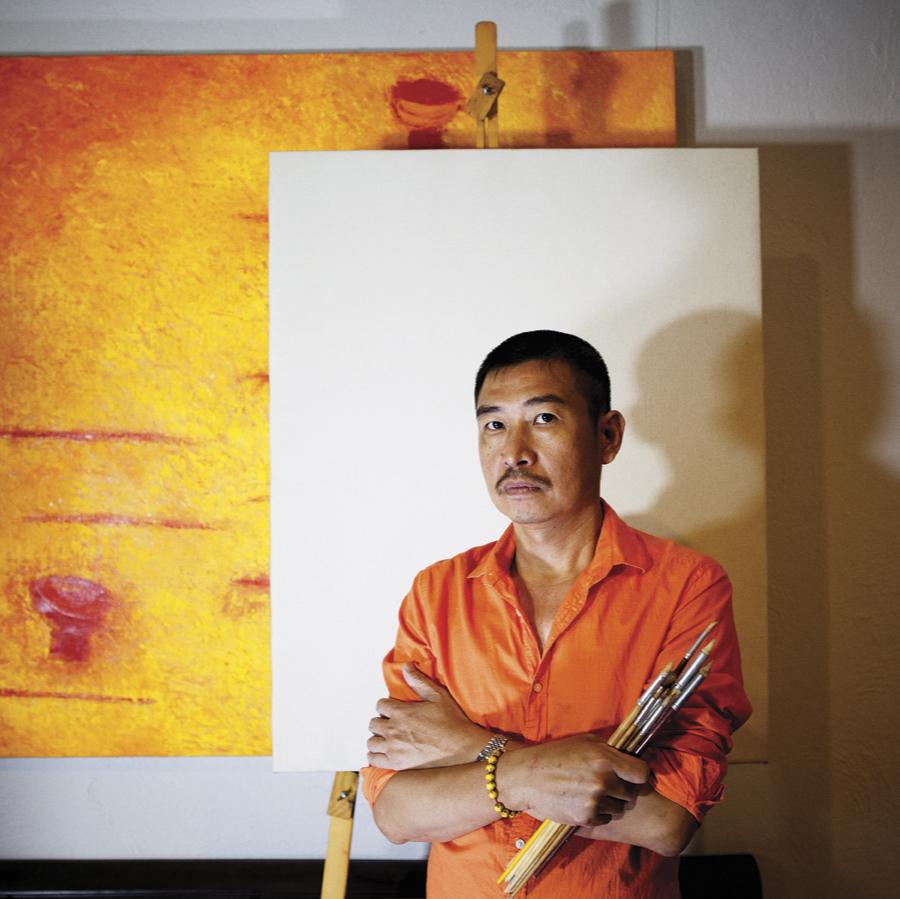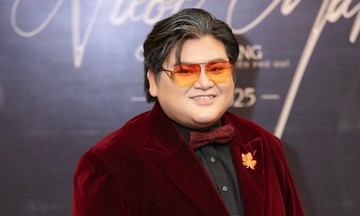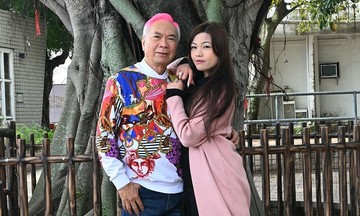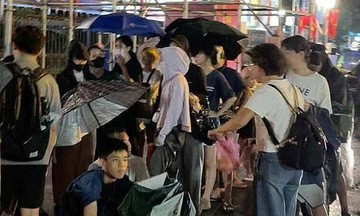Before his passing on 17/7, artist Le Thiet Cuong found solace in music and poetry during his hospitalization for cancer treatment. Many artists and readers composed and shared poems in his memory. These were posted on Cuong's personal page and various fan pages, resonating with many.
 |
An image of artist Le Thiet Cuong with his canvas and brushes, chosen as his portrait for his funeral on 21/7. Photo: Archive |
Scholar Nhat Chieu penned the poem "Grass and Lotus", bidding farewell to "the flamboyant artist returning to the formless":
"You return to yourself,
filtering yourself in the sunlight,
entering the profound painting.
Amidst life's chaos, you walked silently,
painting naive poetry with brilliance.
You let yourself go into the emptiness,
white lotuses fragrant in the season of freely green grass.
Formless, you return to yourself,
the ten directions of the world echo with the true practitioner's footsteps."
Translator Trinh Lu shared his Vietnamese translation of Rumi's poem "When I Die." In the comments, reader Phuong Lan noted that the poem evokes both sympathy and a deeper understanding of life's impermanence, accepting death as a part of life:
"When my coffin
is being carried out
you must never think
I am going away from this world.
Don’t drop tears
don’t lament
don’t despair.
I am not falling
into a monster pit.
When you see
my corpse is being carried
don’t cry for my leaving.
I’m not leaving.
I’m arriving at eternal love.
When you leave me
in the grave
don’t say goodbye.
Remember a grave is only a curtain
for the paradise behind.
You have just seen me
disappear into the tomb.
Now watch me rise
how can there be an end
when the sun sets or
the moon goes down.
It looks like the end
it seems like a sunset
but in reality it is a dawn.
When the grave locks you up
that is when your soul is freed.
Have you ever seen
a seed fallen to earth
not rise with a new life.
Why should you doubt the rising
of a seed named human.
Have you ever seen
a bucket lowered into a well
come up empty.
Why lament for a soul
when it can come back
like Joseph from the well.
When for the last time
we are speechless
so that our word and our soul
will belong to a realm
beyond place, beyond time."
14 years ago, before they knew each other, Le Thiet Cuong emailed poet Nguyen Do about using his work in a poetry calendar. Recently, the artist sent books and enthusiastically supported Nguyen Do's project translating the epic poem "Truyen Kieu." According to the poet, Cuong never expressed pain about his illness during their conversations. In Nguyen Do's memory, his friend was "talented, strong yet easily moved, individualistic but patient in listening and reading." Upon hearing of the artist's passing, he wrote these verses expressing his belief in Cuong's presence in another realm:
"Cuong, the leaf departs in autumn, the sprout will emerge in spring.
You will sprout anew, fresh and pure!
The song of sound has ceased,
Better than longevity, better than itself."
Le Thiet Cuong, born in 1962, was the son of screenwriter and poet Le Nguyen and cinematographer Do Phuong Thao. He studied at the Hanoi University of Theatre and Cinema from 1985 to 1990. He pursued minimalist painting for nearly 40 years, experimenting with various techniques: shades, color harmonies, shapes, and lines.
Beyond painting, Le Thiet Cuong made his mark in photography, sculpture, architecture, and design. He participated in numerous exhibitions both domestically and internationally, curated various events, and had his work included in the collection of the National Museum of Singapore. He also wrote critiques, publishing "Seeing" (2017) and "Conversations with Paintings" (2025). Before his death, he finished printing a new collection of essays and was preparing for an exhibition.
Phuong Linh












